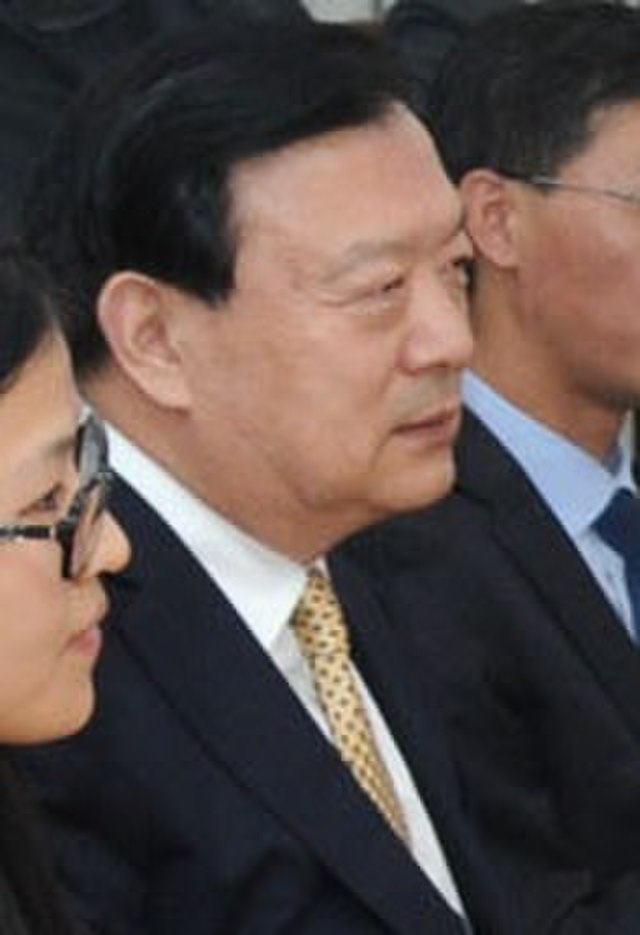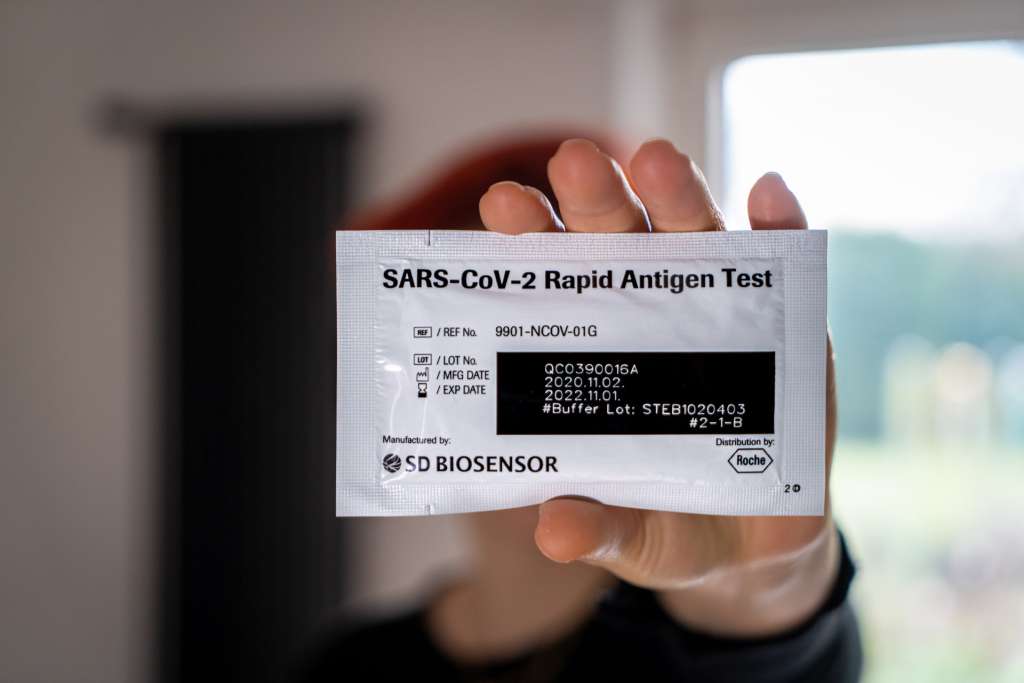THE NUMBER OF CASES of Covid-19 in Hong Kong has skyrocketed since the Lunar New Year. It is heartbreaking to learn of the passing away of hundreds of our citizens, including an 11-month-old baby and dozens of elders aged 80 or above.
Following five rounds of meetings in Shenzhen chaired by Xia Baolong, director of the Hong Kong and Macao Affairs Office, an unprecedented massive assistance effort, marshalled from the Chinese mainland, has arrived in town.

These include epidemiology experts, medical personnel and facilities for large-scale testing, and resources for construction of a number of makeshift hospitals. This happened within 10 days of the important instructions given by President Xi Jinping on reining in Hong Kong’s epidemic. This could happen only in China.
Hong Kong has been blessed with the implementation of “one country, two systems”, and we express our heartfelt gratitude to the timely support of the central government. The institutional strengths of “one country, two systems” are fully demonstrated in the battle against the fifth wave of the COVID-19 outbreak, which allow the special administrative region to tap into the abundant resources of the whole nation to overcome its own insufficiency.
QUARANTINED THREE TIMES
I have been quarantined on the mainland three times and witnessed the successful experiences of COVID-19-fighting there. One key factor of success is the extraordinary mobilization of medical and other resources from other cities and provinces to contain the spread when there was an outbreak in a certain place.
The Chinese saying “Assistance will come from all sides when one place is in danger” captures succinctly the mainland model.
“Public health is about the well-being of the whole population, and winning the COVID-19 battle is crucial to revive the prosperity of Hong Kong. Individual concerns and rights, including privacy, should give way to these overriding objectives“
STARK DIFFERENCES
Now this model is being applied to Hong Kong, which is suffering a much more severe outbreak. Undeniably, there are stark differences between Hong Kong and the mainland in terms of way of governance, mobilization and organization capabilities, as well as professional training and recognition.
But they should not in any way be obstacles when it comes to saving human lives. The SAR government recently passed an emergency regulation that includes the exemption of licensing rules for mainland anti-pandemic personnel. This will be a big boost to Hong Kong society’s morale in fighting this battle at a time when more than 2,000 Hospital Authority employees have been infected.
SERIOUS DEFICIENCIES
While serious bottlenecks of testing capacities, quarantine beds, rapid testing kits and medical staff could be ramped up by the support of the central government, day-to-day operations of the citywide anti-pandemic system, from the arrangements of compulsory testing, home quarantine, hotline inquiries and basic supplies to quarantined families, remain the sole responsibility of the HKSAR government. Yet the chaotic arrangements in the past few weeks were not only disappointing — they exposed serious deficiencies in our administration during crisis periods.

NEITHER WEST NOR EAST
President Xi’s instruction that the HKSAR government should shoulder the main responsibility in containing the city’s fifth wave of the outbreak couldn’t have been timelier. Debates about Hong Kong adopting the mainland model or Western model of the anti-pandemic approach are somewhat misplaced.
No matter which model we adopt, the key to success is the clear delineation of responsibilities allocated to every person and organization: from senior officials to front-line workers, from government departments to businesses and other non-governmental organizations.
“This is time for the demonstration of leadership, commitment and sacrifice for the common good.”
More importantly, those who fail to deliver should be held accountable, in particular during these “wartime” periods. This is time for the demonstration of leadership, commitment and sacrifice for the common good; these qualities are indispensable in coping with every crisis and fighting every battle.
As a socialist country, China’s institutional strengths in handling crises and disasters are obvious. The model of fighting COVID-19 on the mainland is synonymous with fighting a war. It accentuates strategic assessment, quick decisions, and the deployment of multiple armies and weapons that require extremely strong leadership and mobilization of capabilities from all sides. In a battle coined “the people’s war”, all participants should obey every rule at all times.
FIREFIGHTING
By comparison, Hong Kong’s epidemic control approach is similar to firefighting. It has been seen as the job of the “firefighters” (the medical personnel) whereas other people should stay away from fire scenes, let alone offer help. The “work-from-home” policy for civil servants during outbreaks, which has been adopted until very recently, reflects this mentality, which is far from fulfilling the requirements of “shouldering the main responsibility”.

GRID MANAGEMENT
Among all the effective measures I have witnessed on the mainland, the “grid management” approach is one of the most powerful tools for tracing individuals.
First, each sub-region is divided into several grid units, and then the responsible person and members are defined in each grid. The structure of each grid is grid leader – grid member – household unit. Members of the grid can include a variety of professions. For example, Guangzhou pioneered the “three-person team” model; that is, neighborhood committee workers, local police officers and medical staff in the community form a team to trace, monitor and support those who arrive from COVID-19-stricken areas or cities. This small team is very effective in managing people under home quarantine or self-help health-monitoring.
Of course, it would be very difficult for Hong Kong to adopt such a model, given our different social foundation and insufficient local resources. But the mainland’s experience highlights the utmost importance of contact tracing. Because of some unjustified concerns such as privacy issues, Hong Kong has been very reluctant to include tracing functions in our epidemic control regimes.

For example, the LeaveHomeSafe app neither has the contact tracing function nor real-name or ID registration. On the contrary, all color-coding systems in the mainland require the use of mobile phones; and the identity of the mobile phone owner can be recognized through the real-name registration system. When an infected case is discovered, the identity of all close contacts can be identified and all information can be compiled very swiftly using the tracing system, thereby achieving the goal of “running ahead of the virus”.
CITYWIDE TESTING
Mandatory universal testing will be conducted in Hong Kong sometime this month, after calls from many political parties or lawmakers for several months.
One of the reasons for the delay was the misconception that universal testing requires a lockdown of the whole city. Anyone living on the mainland would have realized that this is simply not true, and that people are used to conducting citywide tests in consecutive days while business is conducted as usual.
Why is it possible? The answer lies with a sophisticated contact tracing system. When tracing of individuals is possible via mobile numbers and mobile signals, a citywide lockdown is not necessary unless the outbreak is out of control.

While Hong Kong may still enter this stage, a tracing system complete with information of every individual’s mobile number and address will be a must for any successful universal testing exercise. Let’s bear in mind that the objective of universal testing is to identify, isolate and cure hidden patients as much as possible. The ability to trace the whereabouts of an individual is key to the first step — identification.
Public health is about the well-being of the whole population, and winning the COVID-19 battle is crucial to revive the prosperity of Hong Kong. Individual concerns and rights, including privacy, should give way to these overriding objectives. Let’s hope that with the support of the mainland and the effort of every member of the community, we can win this battle in the near future.
Dr Henry Ho is founder and chairman of the One Country Two Systems Youth Forum.
Image at the top by Mat Napo/ Unsplash
